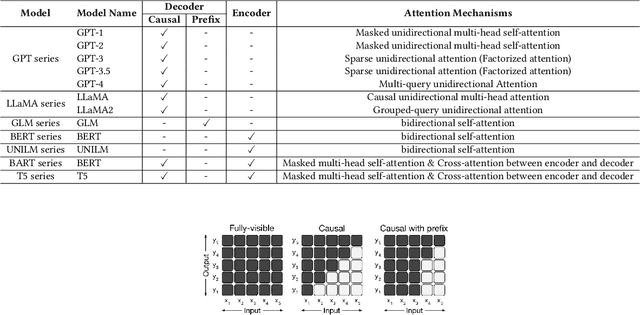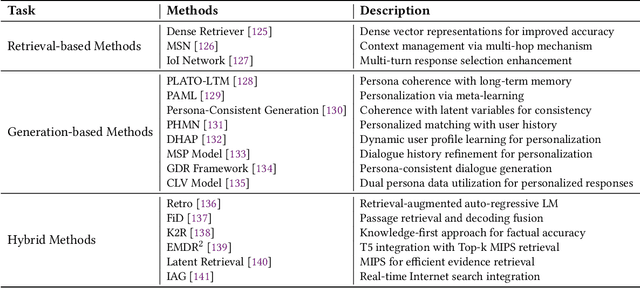Zihao Yi
The Script is All You Need: An Agentic Framework for Long-Horizon Dialogue-to-Cinematic Video Generation
Jan 27, 2026Abstract:Recent advances in video generation have produced models capable of synthesizing stunning visual content from simple text prompts. However, these models struggle to generate long-form, coherent narratives from high-level concepts like dialogue, revealing a ``semantic gap'' between a creative idea and its cinematic execution. To bridge this gap, we introduce a novel, end-to-end agentic framework for dialogue-to-cinematic-video generation. Central to our framework is ScripterAgent, a model trained to translate coarse dialogue into a fine-grained, executable cinematic script. To enable this, we construct ScriptBench, a new large-scale benchmark with rich multimodal context, annotated via an expert-guided pipeline. The generated script then guides DirectorAgent, which orchestrates state-of-the-art video models using a cross-scene continuous generation strategy to ensure long-horizon coherence. Our comprehensive evaluation, featuring an AI-powered CriticAgent and a new Visual-Script Alignment (VSA) metric, shows our framework significantly improves script faithfulness and temporal fidelity across all tested video models. Furthermore, our analysis uncovers a crucial trade-off in current SOTA models between visual spectacle and strict script adherence, providing valuable insights for the future of automated filmmaking.
Too Good to be Bad: On the Failure of LLMs to Role-Play Villains
Nov 12, 2025Abstract:Large Language Models (LLMs) are increasingly tasked with creative generation, including the simulation of fictional characters. However, their ability to portray non-prosocial, antagonistic personas remains largely unexamined. We hypothesize that the safety alignment of modern LLMs creates a fundamental conflict with the task of authentically role-playing morally ambiguous or villainous characters. To investigate this, we introduce the Moral RolePlay benchmark, a new dataset featuring a four-level moral alignment scale and a balanced test set for rigorous evaluation. We task state-of-the-art LLMs with role-playing characters from moral paragons to pure villains. Our large-scale evaluation reveals a consistent, monotonic decline in role-playing fidelity as character morality decreases. We find that models struggle most with traits directly antithetical to safety principles, such as ``Deceitful'' and ``Manipulative'', often substituting nuanced malevolence with superficial aggression. Furthermore, we demonstrate that general chatbot proficiency is a poor predictor of villain role-playing ability, with highly safety-aligned models performing particularly poorly. Our work provides the first systematic evidence of this critical limitation, highlighting a key tension between model safety and creative fidelity. Our benchmark and findings pave the way for developing more nuanced, context-aware alignment methods.
Attention Basin: Why Contextual Position Matters in Large Language Models
Aug 07, 2025Abstract:The performance of Large Language Models (LLMs) is significantly sensitive to the contextual position of information in the input. To investigate the mechanism behind this positional bias, our extensive experiments reveal a consistent phenomenon we term the attention basin: when presented with a sequence of structured items (e.g., retrieved documents or few-shot examples), models systematically assign higher attention to the items at the beginning and end of the sequence, while neglecting those in the middle. Crucially, our analysis further reveals that allocating higher attention to critical information is key to enhancing model performance. Based on these insights, we introduce Attention-Driven Reranking (AttnRank), a two-stage framework that (i) estimates a model's intrinsic positional attention preferences using a small calibration set, and (ii) reorders retrieved documents or few-shot examples to align the most salient content with these high-attention positions. AttnRank is a model-agnostic, training-free, and plug-and-play method with minimal computational overhead. Experiments on multi-hop QA and few-shot in-context learning tasks demonstrate that AttnRank achieves substantial improvements across 10 large language models of varying architectures and scales, without modifying model parameters or training procedures.
Intent-driven In-context Learning for Few-shot Dialogue State Tracking
Dec 04, 2024



Abstract:Dialogue state tracking (DST) plays an essential role in task-oriented dialogue systems. However, user's input may contain implicit information, posing significant challenges for DST tasks. Additionally, DST data includes complex information, which not only contains a large amount of noise unrelated to the current turn, but also makes constructing DST datasets expensive. To address these challenges, we introduce Intent-driven In-context Learning for Few-shot DST (IDIC-DST). By extracting user's intent, we propose an Intent-driven Dialogue Information Augmentation module to augment the dialogue information, which can track dialogue states more effectively. Moreover, we mask noisy information from DST data and rewrite user's input in the Intent-driven Examples Retrieval module, where we retrieve similar examples. We then utilize a pre-trained large language model to update the dialogue state using the augmented dialogue information and examples. Experimental results demonstrate that IDIC-DST achieves state-of-the-art performance in few-shot settings on MultiWOZ 2.1 and MultiWOZ 2.4 datasets.
Dynamic Demonstration Retrieval and Cognitive Understanding for Emotional Support Conversation
Apr 03, 2024Abstract:Emotional Support Conversation (ESC) systems are pivotal in providing empathetic interactions, aiding users through negative emotional states by understanding and addressing their unique experiences. In this paper, we tackle two key challenges in ESC: enhancing contextually relevant and empathetic response generation through dynamic demonstration retrieval, and advancing cognitive understanding to grasp implicit mental states comprehensively. We introduce Dynamic Demonstration Retrieval and Cognitive-Aspect Situation Understanding (\ourwork), a novel approach that synergizes these elements to improve the quality of support provided in ESCs. By leveraging in-context learning and persona information, we introduce an innovative retrieval mechanism that selects informative and personalized demonstration pairs. We also propose a cognitive understanding module that utilizes four cognitive relationships from the ATOMIC knowledge source to deepen situational awareness of help-seekers' mental states. Our supportive decoder integrates information from diverse knowledge sources, underpinning response generation that is both empathetic and cognitively aware. The effectiveness of \ourwork is demonstrated through extensive automatic and human evaluations, revealing substantial improvements over numerous state-of-the-art models, with up to 13.79\% enhancement in overall performance of ten metrics. Our codes are available for public access to facilitate further research and development.
A Survey on Recent Advances in LLM-Based Multi-turn Dialogue Systems
Feb 28, 2024



Abstract:This survey provides a comprehensive review of research on multi-turn dialogue systems, with a particular focus on multi-turn dialogue systems based on large language models (LLMs). This paper aims to (a) give a summary of existing LLMs and approaches for adapting LLMs to downstream tasks; (b) elaborate recent advances in multi-turn dialogue systems, covering both LLM-based open-domain dialogue (ODD) and task-oriented dialogue (TOD) systems, along with datasets and evaluation metrics; (c) discuss some future emphasis and recent research problems arising from the development of LLMs and the increasing demands on multi-turn dialogue systems.
 Add to Chrome
Add to Chrome Add to Firefox
Add to Firefox Add to Edge
Add to Edge